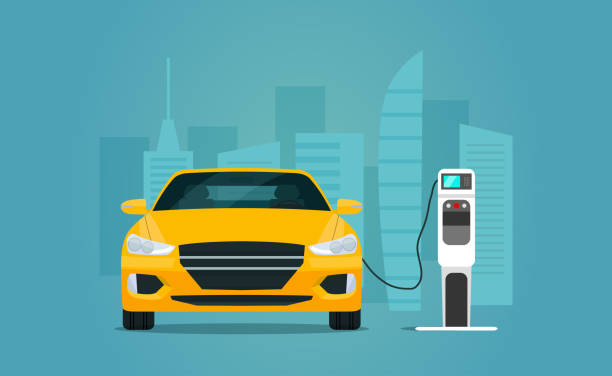Electric vehicle (EVs) are gaining traction as a viable alternative to traditional gasoline-powered cars. With concerns about climate change and the need to reduce greenhouse gas emissions, EVs offer a clean and sustainable mode of transportation. However, the benefits of EVs go beyond just reducing emissions, as they play a crucial role in the energy transition. In this article, we will explore the role of electric vehicles in the energy transition and how they are contributing to a sustainable future.
Introduction
The energy transition refers to the shift towards renewable and sustainable sources of energy. This transition is driven by the need to reduce greenhouse gas emissions and mitigate the impacts of climate change. Electric vehicles are a critical part of this transition, as they rely on renewable energy sources such as wind, solar, and hydroelectric power to charge their batteries. By using renewable energy sources to power vehicles, we can reduce our reliance on fossil fuels and lower our carbon footprint.
Benefits of Electric Vehicles
Electric vehicles offer several benefits over traditional gasoline-powered cars. One of the most significant advantages of EVs is that they produce zero emissions while driving. This means that they do not contribute to air pollution or emit harmful greenhouse gases. Additionally, electric vehicles are more energy-efficient than traditional cars, meaning that they require less energy to operate. This efficiency translates into cost savings for consumers, as they spend less money on fuel and maintenance.
Also Read: Challenges and Advancements in Electric Vehicle Battery Technology
Role of EVs in the Energy Transition
Electric vehicles play a crucial role in the energy transition, as they can serve as a means of energy storage. When connected to the grid, EV batteries can store excess energy from renewable sources during times of low demand. This energy can then be used to power homes and businesses during periods of high demand. This process, known as vehicle-to-grid (V2G) technology, helps to balance the grid and reduce the need for energy storage infrastructure.
Furthermore, electric vehicles can also contribute to the development of renewable energy sources. By using renewable energy to charge EVs, we create a market for renewable energy sources. This increased demand for renewables encourages further investment in renewable energy infrastructure and accelerates the transition away from fossil fuels.
Barriers to Widespread Adoption of EVs
Despite their many benefits, there are still some barriers to the widespread adoption of electric vehicles. One of the most significant obstacles is the high upfront cost of EVs. While electric vehicles are becoming more affordable, they still require a significant upfront investment. Additionally, the availability of charging infrastructure remains a concern for many consumers, particularly those living in urban areas.
Also Read: Information Technology to Support the New Values of the EV
Final Thought
The role of electric vehicles in the energy transition cannot be overstated. With the increasing global demand for sustainable and eco-friendly transportation options, EVs offer a promising solution. By reducing reliance on fossil fuels and promoting the use of renewable energy sources, EVs can significantly reduce carbon emissions and help mitigate the impacts of climate change.
However, for electric vehicles to become a more mainstream transportation option, there are still challenges that need to be addressed, such as improving charging infrastructure, reducing manufacturing costs, and increasing consumer awareness and adoption.
Nonetheless, governments, policymakers, and industry stakeholders must continue to invest in and promote the development and adoption of EVs as a critical component of the transition to a cleaner, more sustainable energy future. With continued innovation and collaboration, electric vehicles have the potential to play a significant role in reducing our reliance on fossil fuels and promoting a more sustainable transportation system.
FAQs
Are electric vehicles really more energy-efficient than traditional cars?
Yes, electric vehicles are more energy-efficient than traditional cars. They convert about 60% of the electrical energy from the grid to power the wheels, while traditional gasoline-powered cars only convert about 20% of the energy stored in gasoline to power the wheels.
Can electric vehicles really store excess energy from renewable sources?
Yes, electric vehicle batteries can store excess energy from renewable sources during times of low demand. This energy can then be used to power homes and businesses during periods of high demand.






